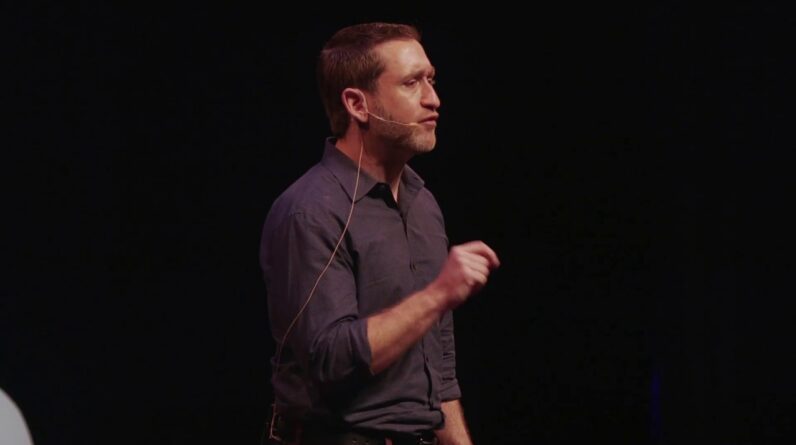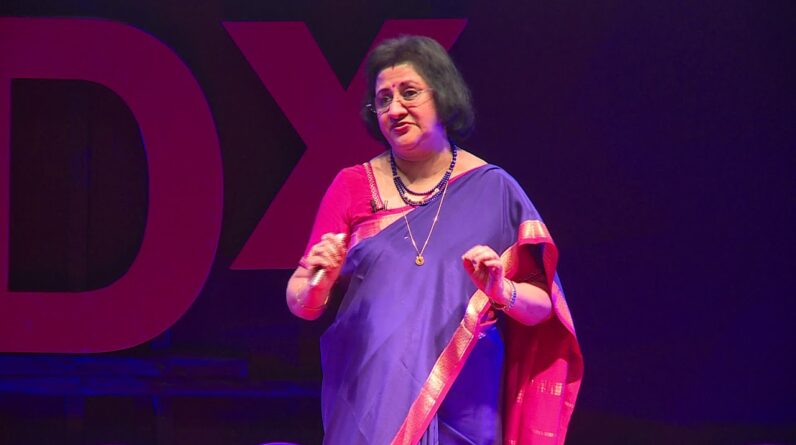At TEDxUSC, business professor David Logan talks about the five kinds of tribes that humans naturally form — in schools, workplaces, even the driver’s license bureau. By understanding our shared tribal tendencies, we can help lead each other to become better individuals.
TEDTalks is a daily video podcast of the best talks and performances from the TED Conference, where the world’s leading thinkers and doers give the talk of their lives in 18 minutes. Featured speakers have included Al Gore on climate change, Philippe Starck on design, Jill Bolte Taylor on observing her own stroke, Nicholas Negroponte on One Laptop per Child, Jane Goodall on chimpanzees, Bill Gates on malaria and mosquitoes, Pattie Maes on the “Sixth Sense” wearable tech, and “Lost” producer JJ Abrams on the allure of mystery. TED stands for Technology, Entertainment, Design, and TEDTalks cover these topics as well as science, business, development and the arts.
Tribal Leadership by David Logan
If you’ve been wondering what makes Tribal leadership unique, you’ve come to the right place. David Logan is an expert in business culture and a professor of executive education. Here, he shares his insights on Tribal leadership. Let’s start with Stage One. The words you use and the kinds of relationships you form are critical to moving from Stage One to Stage Five. And then, consider Stage Four. Stage Five teams often revert back to Stage Four to regroup.
David Logan is a Tribal leader
Dr. David Logan is a bestselling author, consultant to Fortune 500 companies, and cultural transformationalist. He is currently CEO of Well Physician California, a joint venture between Stanford University and the California Medical Association. His latest book, Tribal Leadership, discusses the importance of cultural transformation to organizational performance. Read his book, and be inspired to make a difference in the world. You can learn more about David Logan here.
In Tribal Leadership, David Logan shows corporate leaders how to develop and lead their own tribes to the maximum level of productivity and growth. He describes the development of tribes and how they communicate, assess, and lead. You will learn how to lead and assess your own tribe to new heights of success. For example, if you are a manager, you can become a tribal leader by teaching your employees the value system.
In the book, Logan explores why people gravitate towards groups. He argues that tribes are often fragmented groups within large clusters of people. He describes five stages of tribes, from the first stage of gangs to the third, a time of greater self-esteem. You may feel that you are at the beginning of the process or you have already reached the end. But, he argues that tribal leaders must be willing to embrace the process of change and learn to lead by example.
Tribal leaders set the standard for performance in their industry. They inspire people to focus on what they care about. They form missions to make something great happen. Tribal Leaders also help people get unstuck and transition into higher-performance states without stress. They lead others to a higher level. If you want to become a tribal leader, this book is for you. So get started today. You’ll be glad you did.
There are five stages of tribes. Each stage has different lever points for tribal leaders. In stage three, the tribe is successful, but not unified. Its culture is unique to each individual. In stage four, the tribe is starting to gel. They can achieve great things together. In stage five, the tribe is united under a shared cause and value. It’s time to create a legacy that will endure for generations to come.
David Logan is a business culture expert
In his book Tribal Leadership, David Logan, a business culture expert, helps leaders understand the five stages of tribes and how they can best align them around a core cause or purpose. The book provides specific coaching tips that help leaders and their employees speak the language of the tribes. For example, you can listen to how employees talk about themselves to gain a better understanding of what they’re feeling.
Dave Logan is a business culture expert, author, and consultant who specializes in organizational change and communication. His research interests include emerging patterns of corporate leadership, generational differences in the workplace, and team building for high-potential managers and executives. He is co-author of four books including The Three Laws of Performance and Tribal Leadership. His books explore how to leverage the inherent strengths of tribes to achieve the best results for companies.
Aside from his consulting work, Dave Logan has published five books. One of his books, Tribal Leadership, was a New York Times bestseller. The other book, The Three Laws of Performance, was a Wall Street Bestseller. In addition to his work, he has also taught at USC’s Marshall School of Business and lectures around the world. Dave Logan is also an Associate Professor of Organizational Communication at the Annenberg School of Business.
The authors of Tribal Leadership describe organizations as networks of tribes, groups of 20 to 150 people. These networks are highly connected and can create extraordinary impact, innovation, and success in key performance goals. Based on a study of more than two thousand people, Tribal Leadership is based on research into the evolution of corporate cultures and the five stages of tribe development. The book is less concrete than most organizational sociology but it offers useful tools to create powerful tribes.
People in Stage 1 are convinced that life is unfair. They have severed their relationships with functional tribes and gravitate toward their own dysfunctional units. This level represents approximately two percent of the workforce in the US. However, there is some hope. The members of this tribe believe their work is unvalued and blame the boss for everything. Aside from the negative energy, the members of this tribe are also highly critical of their boss.
Leaders of cohesive cultures should create a work environment that provides opportunities for all employees to play their roles. This creates personal investment in the organization and increases employee loyalty and productivity. Leadership should involve employees in shaping their cultures by allowing them to provide feedback through suggestion boxes, employee surveys, and quantitative assessments. In addition to incorporating the ideas of employees, managers should also promote open communication, trust, and collaboration, and have transparent goals.
David Logan is a professor of executive education
Dr. David Logan is an author, consultant, and bestselling author. He has co-authored four books and is a contributing writer for CBS Money Watch and the Social Science Research Network. In addition to writing books, he lectures extensively on organizational culture and leadership. His work has also appeared on CNN, Fox, NPR, and most major US television networks. He also writes for Huffington Post and has a TED Talk with more than half a million views.
Logan has published dozens of articles, training programs, and four books. In 2008, Forbes Magazine featured him as a paradigm shifter. Toastmasters Magazine lauded his natural speaking skills, and his book, Tribal Leadership, was featured on CBS News. The book has also been cited in numerous business and finance texts. Logan is considered one of the leading authorities on tribal leadership and has been credited for a number of publications.
Logan was previously an Associate Dean of Executive Education at USC from 2001 to 2004. He initiated executive education programs with corporations and nonprofit organizations. He is now a co-founder and senior partner of CultureSync. His clients include Fortune 500 companies, government agencies, and nonprofit organizations. Further, he has published several books and has written numerous articles in academic journals. For more information on his research, visit the CultureSync website.
In his presentation, Dave Logan discusses how tribes develop and how to assess and lead them to new heights. Tribals have been around since the beginning of time, and corporations have dozens or hundreds of them. By examining the culture and leadership of each tribe, corporate leaders can establish an effective tribal leadership. With his book, corporate leaders will learn how to evaluate tribal culture and elevate their tribes to new heights of success.
Creating a positive work environment is the primary goal of Tribal Leadership, which also offers a prescription for the struggling segments of society. In fact, Tribal Leadership presents a comprehensive roadmap for the new reality of leadership in organizations, careers, and life. It identifies the new paradigm in information technology and business, and explains how to become a more active member of a tribe.
Professor David Logan has developed a practical guide to tribal leadership that explains the five stages of tribal development. Using the language of each tribe, he identifies the level of the tribe and how leaders can lead people up the appropriate path. He further argues that leaders need to know how to work in all five levels of tribal development. The best leaders are fluent in all five stages of tribal development.





